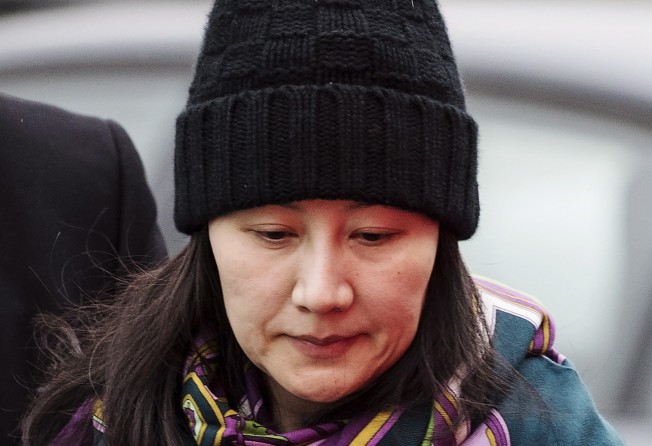Could Americans be caught in the crossfire of an extradition request for Huawei’s Meng Wanzhou?
- Retaliation against US nationals a possibility but unlikely to match action against Canadians, observers say

Canadians may be in the firing line now but the US nationals could be at risk as the extradition saga involving Chinese tech executive Meng Wanzhou unfolds, observers say.
Beijing warned Washington on Tuesday against proceeding with its formal extradition request for Meng, chief financial officer of Chinese telecoms giant Huawei Technologies, which US officials are expected to file before the January 30 deadline.
If Canada extradites Meng – also known as Sabrina Meng and Cathy Meng – to the US to face charges, Americans could face repercussions, albeit to a lesser degree, according to observers.
Since Meng’s arrest last month, ties between China and Canada have been damaged over what has been seen as Beijing’s retaliatory detentions of two Canadians – former diplomat Michael Kovrig and businessman Michael Spavor – on vague national security charges. Canada’s envoy to China, John McCallum, warned last week that the actions could taint Beijing’s global reputation.
Observers said China had reacted more aggressively to the case of Meng, the daughter of Huawei founder Ren Zhengfei, because the company was a high-profile symbol of Chinese national pride.
Julian Ku, a professor at Hofstra University’s law school, said it would not be “out of the question” for there to be arrests of US nationals.
“But it is worth noting that China has not tried to play this ‘hostage’ game with the US,” Ku said.
He said China might also issue a travel warning about the US, as it did for its citizens in Canada, cautioning about “arbitrary detention” at the request of “third-party countries”. That advisory came hours after Canada released a travel warning for Canadians travelling to China, warning of “arbitrary enforcement of local laws”.
Ku said that if the United States kept up pressure on other countries not to use Huawei products “and it pursues a criminal prosecution against Huawei the corporation in the US, it is possible the Chinese government will retaliate in some other way, for example prosecuting a US company”.
The US has banned government use of Huawei’s technology products and services on security concerns. It has also pressed its allies to follow suit.
Shi Yinhong, an international relations professor at Renmin University in Beijing, said if China took retaliatory measures against the US, it will be of “less intensity” than those taken against Canada. Regardless of whether Meng was extradited, there would not be a significant impact on ongoing trade talks or the scrutiny that Huawei faced in developed countries, he said.
“But in the longer term, if tensions escalate between China and the US, or between China and Canada, it will not be because of this case,” Shi said. “It will be because of other factors.”
Meng was detained at the US’ request on December 1 while on a 12-hour layover in Vancouver airport, on the same day that US President Donald Trump and Chinese counterpart Xi Jinping discussed trade on the sidelines of the G20 summit in Argentina.
Although the White House said Trump was unaware of the request at the time, many in China felt Meng’s arrest was a politically orchestrated move in the midst of the trade talks.
Stephen Nagy, a Canadian politics and international studies professor at the International Christian University in Tokyo, said he felt Meng’s detention was “partly tactical” by the US to use as a negotiating tactic in the trade war, given the Trump administration’s tendency to “apply all leverage against their negotiating partner”.
Nagy said Canada had no choice but to act according to its extradition treaty with Washington, and China had retaliated against Canada to pressure the US.
“China very much understands that the best way to put pressure on the United States is to peel away its partners in the region, to use these kinds of tactics to make Canadians and other middle powers … think twice about cooperating with the United States,” he said.
“This does dilute the US’ influence and its negotiating position vis-à-vis China, so I think that this is a purposeful tactic by the Chinese. You peel away the closest partners of the United States, then it makes it more difficult for them to apply a comprehensive concerted policy on China.”
But the result was “very, very serious damage” to perceptions of China for Canadian businesses and the government, he said.
Scott Romaniuk, postdoctoral research fellow at the China Institute at the University of Alberta, said the US was expected to make a formal request for extradition.
“The concern on the Canada side is that the US will simply hand her over to China, which would be an ugly situation for Canada as the country has come under dual pressure with little possibility of coming out of this looking like the ‘good guy’,” Romaniuk said.
“If the US were to not make this request, the situation would not be a positive one for Canada as it would have then done the majority of the heavy lifting and been the recipient of bad publicity the entire way.”